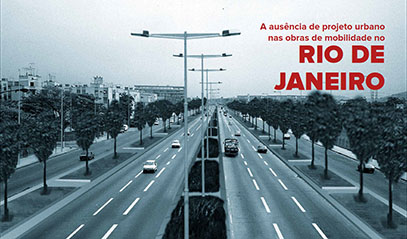A ausência de projeto urbano nas obras de mobilidade no Rio de Janeiro
Resumen
O artigo destaca a “particular” concepção da mobilidade adotada nas obras realizadas no Rio de janeiro com o motivo dos Jogos Olímpicos. O enorme investimento em melhorar o transporte público tem se caracterizado pelo esquecimento do pedestre e, em certas ocasiões, tem sido acompanhado de ampliações do espaço para automóveis privados, ignorando que as políticas de mobilidade sustentável são efetivas só com limitações no uso do carro e reforçando o espaço dos deslocamentos não motorizados (pedestre e ciclista). Perdeu-se a oportunidade de mudar o modelo de dependência do carro que impera na cidade, e o legado dos jogos que ficará não terá melhorado a qualidade do espaço público. Em outras cidades, uma mobilidade mais sustentável tem influenciado no esforço para melhorar suas ruas, fazendo delas lugares mais atrativos para o passeio e outras atividades urbanas. Parece que o setor público carioca tem renunciado ao projeto urbano, na crença de que os empresários de obras, sem controle, são mais eficazes. Os acontecimentos de corrupção no gasto público do país e os efeitos nas obras mostram o lado errado dessa estratégia.
Palavras-chave: Rio de Janeiro; urbanismo; mobilidade.







